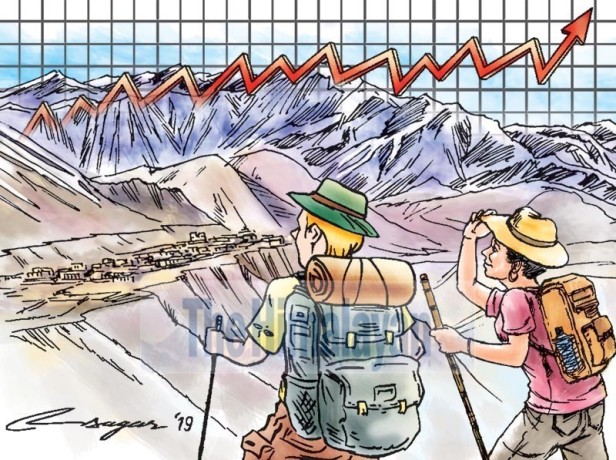Tourism's Transformative Impact on Nepal's Economy Professional
Nov 3rd, 2023 at 07:14 Blogs Kathmandu 326 views Reference: 887Location: Kathmandu
Price: Contact us
Title: Tourism's Transformative Impact on Nepal's Economy
Introduction
Tourism has emerged as a dynamic and transformative force in Nepal's economy, driving growth, creating employment opportunities, and contributing to local development. The country's unique blend of natural beauty, cultural heritage, and adventure opportunities has attracted travelers from around the world, making tourism a crucial pillar of economic prosperity. The impact of tourism reaches beyond the travel industry, influencing sectors such as hospitality, transportation, and handicrafts.
Economic Growth and Revenue Generation
Tourism is a significant contributor to Nepal's Gross Domestic Product (GDP). The revenue generated from tourism-related activities, including accommodation, transportation, guided tours, and entry fees to historical sites and national parks, has a substantial impact on the economy. This revenue helps fund public infrastructure, education, healthcare, and other essential services, driving economic growth and development.
Employment Creation
One of the most direct and tangible benefits of tourism is its role in employment creation. The hospitality industry, travel agencies, tour guides, drivers, and local artisans all find opportunities within the tourism sector. Additionally, the demand for goods and services by tourists stimulates other sectors of the economy, generating a ripple effect that supports numerous livelihoods.
Regional Development
Tourism has been instrumental in the development of rural and remote regions in Nepal. Tourists often venture beyond major cities, exploring picturesque villages, trekking routes, and cultural heritage sites. This dispersal of tourism benefits local communities by creating income-generating activities, boosting local markets, and enhancing infrastructure, such as roads and accommodations.
Cultural Preservation and Revitalization
Tourism promotes the preservation and revitalization of Nepal's rich cultural heritage. The income generated from cultural tourism supports the maintenance of historical sites, temples, monasteries, and traditional arts and crafts. This preservation effort not only contributes to Nepal's identity but also attracts tourists interested in experiencing its unique cultural tapestry.
Foreign Exchange Earnings
Tourism significantly contributes to Nepal's foreign exchange earnings. The influx of international tourists brings foreign currency into the country, strengthening the national currency and increasing foreign exchange reserves. This is particularly important for a developing economy like Nepal, enhancing its ability to manage trade imbalances and invest in essential sectors.
Challenges and Sustainability
While tourism has numerous positive impacts on Nepal's economy, it also presents challenges that require careful management:
Environmental Impact: Ensuring sustainable tourism practices to protect Nepal's fragile ecosystems and biodiversity is essential.
Infrastructure Development: Investing in infrastructure to support the growing number of tourists while minimizing negative consequences on local communities and landscapes.
Cultural Sensitivity: Balancing the desire for cultural experiences with respect for local traditions and ways of life.
Seasonality: Addressing the seasonality of tourism to ensure a consistent income flow and avoid overreliance on certain months.
Conclusion
Tourism's transformative impact on Nepal's economy cannot be overstated. Beyond the immediate financial gains, it contributes to job creation, regional development, cultural preservation, and foreign exchange earnings. As Nepal continues to promote and develop its tourism sector, it is essential to balance growth with sustainability, ensuring that the benefits of tourism endure for generations while safeguarding the country's natural and cultural treasures.




